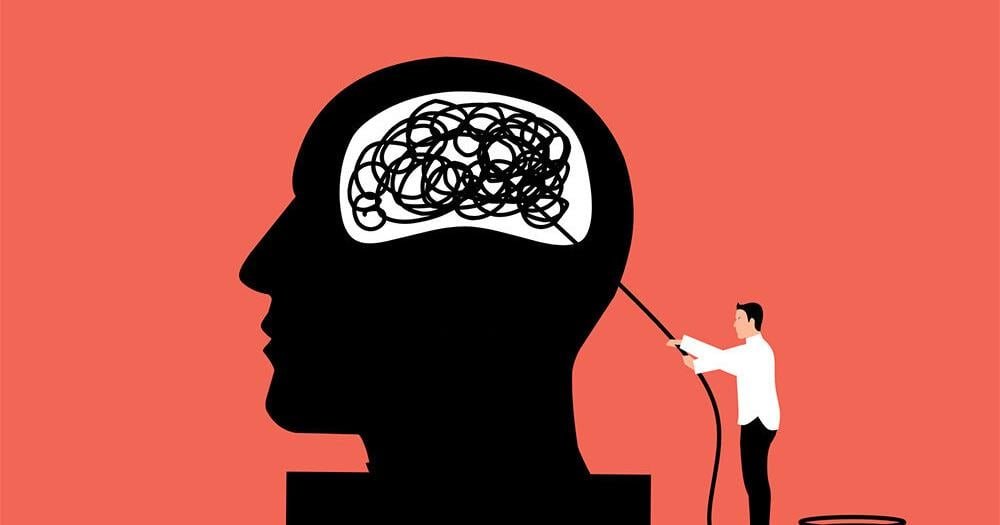(RNS) The COVID-19 pandemic was the first time that America’s mental health crisis became apparent to many of us. As children quarantined at home and deprived of contact with friends and adults who lost their jobs, we saw for the first time the chronic depression, anxiety and rising suicide rates that were already bubbling just beneath the surface of American life.
While religious leaders were perhaps more aware of the mental health challenges in our churches, we, too, have been slow to recognize the extent of this crisis and the role we must play in the mental health of those who share our greatest joys and worst sorrows.
With May being Mental Health Awareness Month, clergy can begin to understand how to address these challenges. The ancient rabbinic text, Pirkei Avot, teaches that “we are not obligated to complete a task, but we are also not free to abandon it.”
Like many of my colleagues, I often sit with congregations who share their struggles. Some are grieving the loss of a loved one. Others struggle to get out of bed and can’t find the hope to get through the day. There is a stigma surrounding mental health services, so few seek medical help. Thus, pastoral advice and guidance can be the only barrier standing between congregants and a potentially dangerous situation.
Three years ago, I asked, “What if we provided mental health services directly to them?”
From that question, Temple Sinai Mental Health Center was born. As the pandemic spread in 2020, our synagogue hired a full-time licensed clinical social worker to help assess and plan for the mental health needs of our community, including clergy and staff. The social worker provides one-on-one short-term counseling, runs our bereavement groups, and delivers wellness programs for the community.
The lesson we learned is profound: when mental health becomes part of the fabric of a faith organization, it reduces stigma because it becomes more ingrained in everyday vocabulary. Whether believers are caring for an ill parent, mourning the death of a loved one, or struggling with depression or other mood disorders, having a mental health professional among their congregation can remind them, “I thought I was the only one. Now I know I’m not alone.”
I’ve witnessed this dynamic in various ways over the past three years. After a young father in our church died, she met with other parents to help them understand not only their family’s tragedy, but also their own questions. Parents couldn’t help but wonder, “If he dies, what will this mean for my life? How do I get through this pain?” They wanted to know what was developmentally appropriate to tell their children about death.
She also reached out to the clergy, and when we buried a loved one of our community, she gave us the space to grieve.
She has connected families dealing with loved ones with dementia and Alzheimer’s disease, forming a tight-knit small community of support and friendship, while helping her congregants deal with other challenges.
While it may not be realistic for every house of worship to hire a clinician, by following a few principles, it is possible to bring mental health resources closer to congregants.
First, let us embed mental health in the teachings of our faith. The biblical story of Hannah depicts what might be diagnosed as depression, as she is unable to bear children and her husband asks his beloved wife, “Why do you cry? Why do you not eat? Why are you so sad?” This story teaches us that although mental health issues are a part of everyday life, they require careful attention and treatment. Clergy can emphasize these lessons from the pulpit.
Second, be informed. Consider bringing in clinicians who are trained in identifying child and elder abuse to provide suicide prevention and mandatory reporter training. At a minimum, people should know the signs of suicide risk factors, what constitutes suicidal tendencies or thoughts, how to report someone who is having suicidal thoughts, and how to recognize abuse and report it to protective services.
Third, make a list of local mental health programs that you can refer your congregation to. You are not expected to be both a faith leader and a therapist or to be present for each emotional struggle your congregation faces. Look for recommendations of child and couples therapists who are accepting new clients. Become familiar with counseling centers that offer sliding scale payment options. What online therapy programs are available in your state? Search your area for mental health education offerings and speakers that can improve the lives of your congregation.
Finally, consider sharing the cost of a mental health clinician with other churches. Religious leaders spend countless hours creating solemn and safe sanctuaries. What a blessing it would be to have mental health resources available in your private house of worship. Whether a clinician helps congregants think through the steps to placing a parent in a senior care facility or counsels clergy on specific end-of-life issues, their guidance is invaluable.
While we may not be able to solve the nation’s mental health crisis, as faith leaders we have both a deep responsibility and a unique opportunity to help our communities normalize conversations about mental health and reduce stigma. Our attention to mental health may be what enables our congregations to find the divinity within themselves and ultimately walk the path of hope again.
Rabbi Nicole Guzik, a trained marriage and family specialist, is co-senior rabbi at Temple Sinai, one of the largest synagogues in Los Angeles. The views expressed in this commentary do not necessarily reflect those of Religion News Service.

